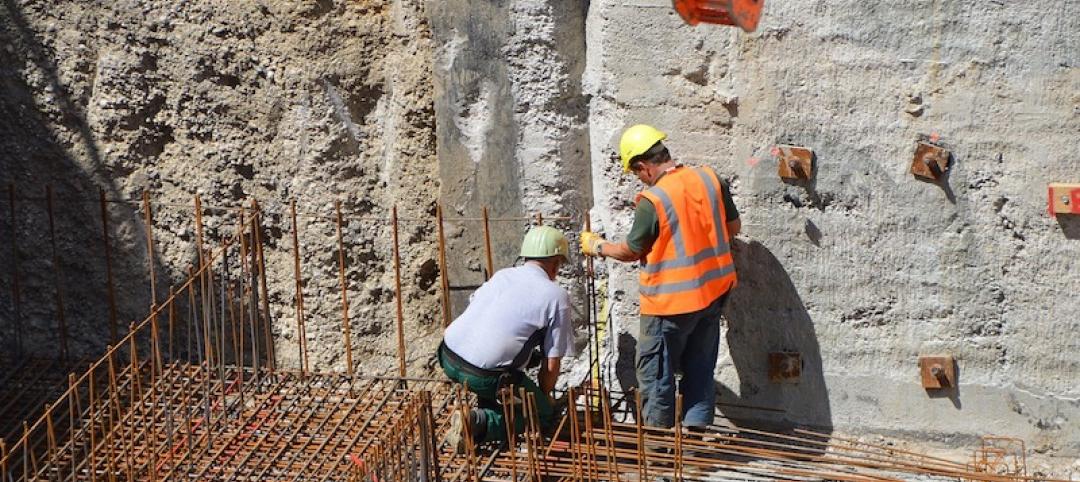Construction employment climbed by 110,000 in March as the industry recovered from severe winter weather that pushed employment down by 56,000 in February, according to an analysis by the Associated General Contractors of America of government data released today. Association officials said they were encouraged by the recent job gains and the potential for new infrastructure investments. But they cautioned that rising prices and erratic delivery schedules for key construction materials—as documented in their recent Construction Inflation Alert–and continued project cancellations could undermine the sector’s recovery.
“The rebound in March is certainly good news, but contractors face growing challenges that imperil further growth in nonresidential employment,” said Ken Simonson, the association’s chief economist. “In fact, industry job gains in the first quarter of 2021 as a whole have slowed sharply from the second half of 2020.”
Construction employment in March totaled 7,466,000, which was 182,000 employees or 2.4% below the most recent peak in February 2020. Over the past three months, the industry added 66,000 jobs, an average of 22,000 per month. In contrast, construction employment increased more than three times as fast from June to December last year, with an average gain of 76,000 jobs per month, the economist noted.
Nonresidential construction is experiencing headwinds from postponed and canceled projects, steep increases in materials costs, and lengthening delivery times. Simonson pointed out that the nonresidential sector—comprising nonresidential building, specialty trades, and heavy and civil engineering contractors—remains 231,000 jobs or 4.9% shy of the pre-pandemic peak set in February 2020, whereas employment among residential building and specialty trade contractors is 49,000 or 1.6% above the February level.
Unemployment in construction remains elevated. A total of 835,000 former construction workers were unemployed in March, up from 658,000 a year earlier and the highest for March since 2014. The industry’s unemployment rate in March was 8.6%, compared to 6.9% in March 2020.
Association officials said the best way to ensure continued construction job gains was for Congress to act on the President’s infrastructure funding recommendations without the tax and regulatory additions that would imperil broader economic growth. They also continued to call for the removal of tariffs on key construction materials and federal measures to address port and shipping backups.
“It will take more than nice weather for the construction industry to keep adding jobs this year,” said Stephen E. Sandherr, the association’s chief executive officer. “Investing in infrastructure, avoiding needless new regulations and counterproductive tax hikes, and fixing the supply chain will help the industry create many more high-paying construction career opportunities over the coming months.”
View the Construction Inflation Alert.
Related Stories
Codes and Standards | Feb 14, 2019
ISO publishes first global BIM standards
Based on British standard and a publicly available standard.
Codes and Standards | Feb 12, 2019
Property technology adoption accelerates in commercial real estate industry
New business models create disintermediation.
Codes and Standards | Feb 11, 2019
Investing in downtowns pays off for cities, regions
Benefits include driving tax revenue, business activity, and smart development.
Codes and Standards | Feb 8, 2019
Oslo, Norway’s downtown goes virtually car-free
Parking spots converted to bike lanes, transit is fast and easy.
Codes and Standards | Feb 7, 2019
New North Carolina energy code has extensive lighting control requirements
Includes automatic shut offs for buildings of all sizes.
Codes and Standards | Feb 6, 2019
Solar carports can help with California’s Title 24 mandates
Can be combined with virtual net-metering software and tax-enabled financing.
Codes and Standards | Feb 5, 2019
Milwaukee board approves rezoning for Western Hemisphere’s tallest mass timber building
Mixed-use tower would rise 21 stories high.
Codes and Standards | Feb 1, 2019
Mass. governor proposes real estate transfer fee hike for climate resiliency projects
Opposed by real estate and trade groups, plan could generate $1 billion in next decade.
Codes and Standards | Jan 31, 2019
New York City will reform construction bid process
Streamlined process intended to improve efficiency, reduce hassle for bidders.
Codes and Standards | Jan 30, 2019
New AGC program aims to diversify construction workforce
More diversity needed to keep pace with demand for workers.

















